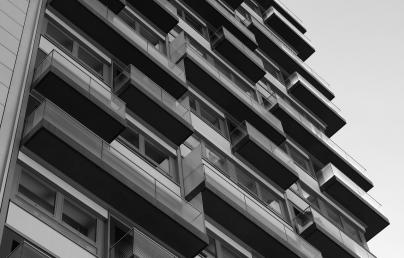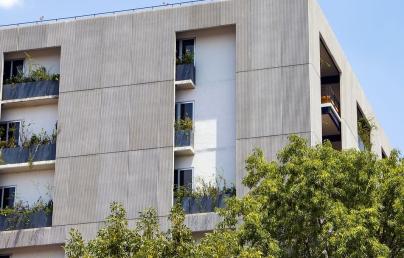UKGBC study reveals significant carbon reductions can be achieved across residential developments at little cost

UKGBC study reveals significant carbon reductions can be achieved across residential developments at little cost
The UK government has committed to reach net zero emissions by 2050 and, alongside this, build 300,000 new homes a year by the mid-2020s. Given that existing homes are already responsible for 16% of the UK’s greenhouse gas emissions, the residential sector has a critical role to play to slash emissions and help achieve net zero ambitions.
UKGBC’s new report, titled ‘Building the Case for Net Zero: A case study for low carbon residential developments’, examines the design and cost implications of minimising embodied carbon for a real-world, low-rise residential scheme in Southwest Cambridgeshire. It shares valuable insight into the role masterplanning – such as roads, utilities and energy infrastructure – can play in the wider transition to net zero’ an area which many developers often overlook, resulting in vast amounts of carbon being minimised.
Key findings revealed by the study include:
- Overall, a 20.3% embodied carbon reduction was achieved between the ‘baseline’ and ‘stretch’ design scenarios, with a negligible impact on capital costs (0.6% increase).
- A range of simple and cost-effective interventions for reducing embodied carbon can be implemented today, including: minimising parking area to embrace the shift towards vehicle sharing, the use of swales to reduce stormwater drainage; and switching from asphalt to low carbon, permeable paving.
- The widescale delivery of carbon reductions across residential developments can only be achieved through more consistent measurement and reporting of embodied carbon.
- A culture shift is required away from car ownership and towards the adoption of active travel methods to reduce embodied carbon from grey infrastructure – roads and parking – and transport emissions, and the future of travel should become a key consideration for residential developers.
- Simple nature-based solutions can be incorporated within masterplanning to enhance the climate resilience of homes, such as replacing hard surfaces with soft landscaping and trees, which can reduce embodied carbon while delivering increased biodiversity net gain and a reduction in flood risks
- New developments can play a vital role in improving residents’ health and wellbeing as well as create a sense of community and social ties through the wider use of communal gardens and access to nature and green spaces.
Find more details here.
08737-masterplan-v12.pdf
English (10.86 MB - PDF)

